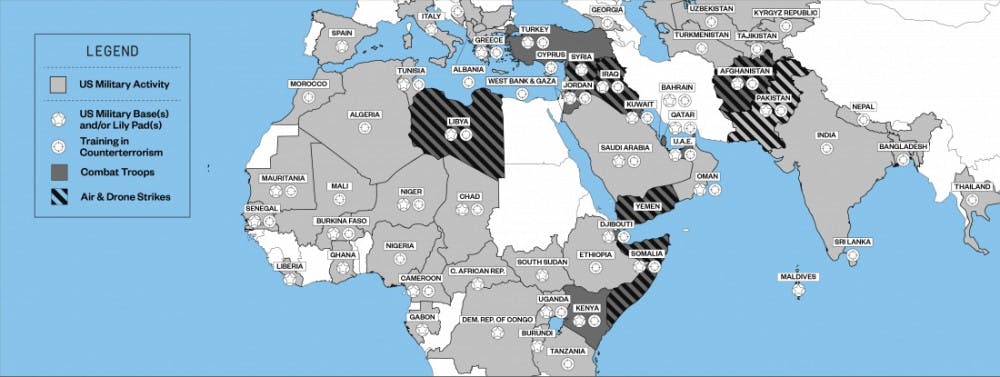The Costs of War Project, which studies post-9/11 U.S. wars in Iraq and Afghanistan and related violence in neighboring nations, hosted a panel at the Watson Institute for International and Public Affairs Monday afternoon as its first step toward expanding its focus to include Africa, according to International Studies Professor and Co-Director of the project Catherine Lutz.
Members of the project, which is housed within Watson, decided to study Africa after they constructed a global map of current U.S. counterterrorism war locations, Lutz said. “We saw how concentrated the activity was in Africa and realized we need to know more about that because it’s considered part of that post-9/11 U.S. military orientation to solving the problems,” she added.
Members of the project hope to partner with Africa-focused non-governmental organizations that are concerned about civilian casualties and government accountability, Lutz said.
Monday’s panelists highlighted drones, accountability and U.S. military language used to discuss Africa, among other topics.
This year, the United States has sent over 30 drone- or air strikes into Somalia, “and now it’s about every week,” said panelist and Colby College Professor of Anthropology Catherine Besteman. “With drone attacks, you have the drone fly in, it kills 100 people. The U.S. claims it was 100 militants — there’s no accountability for that.”
Panelist and contributing writer at The Intercept Nick Turse said that while investigating top-secret, leaked U.S. drone warfare reports in 2015, he was struck by the language used to discuss Africa. “(The reports) do have a very ‘dark continent,’ ‘scramble for Africa’-era type language to them, and they talk about these ungoverned spaces and having to eradicate the ‘tyranny of distance,’” Turse said.
Lutz agreed that the U.S. military tends to think of these ungoverned spaces as “spaces that should be under control.”
Drones bases along the edges of Africa would enable the U.S. military to increase “coverage” across the continent and “eradicate this blank space,” Turse said. He acknowledged that the use of drones has helped the United States “keep the footprint as small as possible and the deployments as small as they can.”
Panelist and Assistant Professor of Geography at University of California, Los Angeles Adam Moore agreed with Turse, adding that drones “reduce the risks on the Western bodies … and put it on foreign bodies.”
In addition to the project’s new focus on Africa, members will continue their work on exisiting papers. Contributors to the project will present their report on the federal budget and the costs of the war in Iraq and Afghanistan at a Congressional press conference in November, Lutz said.





